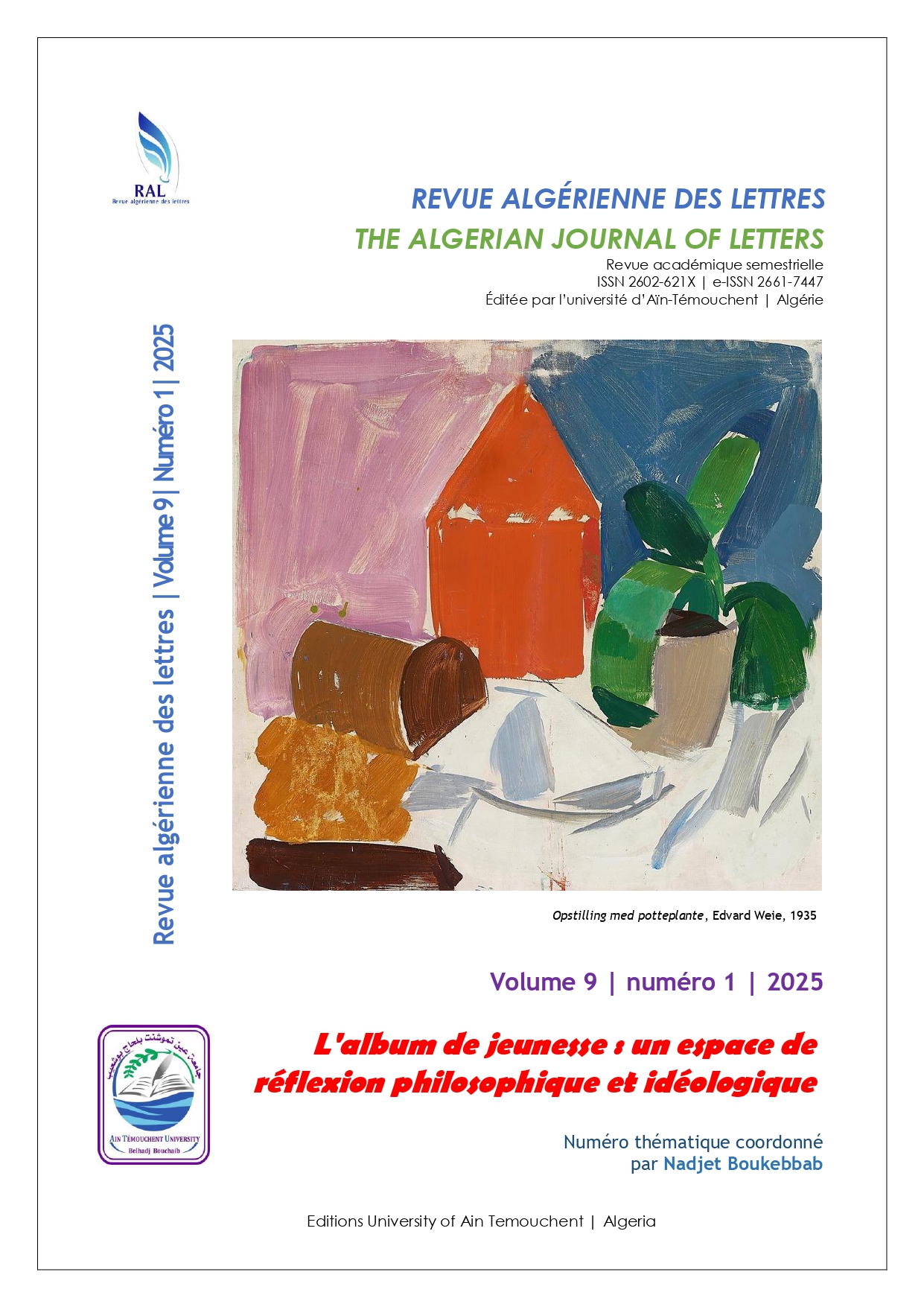Pastoralisme et Ethnoscape réinventés. Ecoféminisme dans le roman féminin africain postcolonial
Reinvented pastoralism and ethnoscape. Ecofeminism in the postcolonial African female novel
Keywords:
Ecofeminism, pastoralism, postcolonialism, environment, resilienceAbstract
In Vénus de Khalakanti, the novel of AngèleKingué’s, we evoke “Cultiver son jardin (growing your garden)” as a metaphor for sustainable development, highlighting the need to reconnect with one’s roots and nature. This concept emphasizes autonomy in the face of contemporary challenges such as rural exodus and migration. Through her female characters, the author explores their ability to restore the environment and claim their power, becoming symbols of resilience and innovation. The reinvention of pastoralism, rooted in the African oral tradition, highlights the richness of traditional knowledge and challenges stereotypes
associated with rural life. Kingué also illustrates the link between the ecological situation in Africa and historical relations with the West, highlighting the importance of a dialogue between ecocriticism and postcolonial theory. The emergence of an African Ecofeminism values women’s experiences and places them at the heart of discussions on environment and development. Thus, the work addresses crucial contemporary issues, linking environment, feminism and Postcolonialism, while inviting reflection on the role of women in the struggle for a sustainable future.
Downloads
Downloads
Published
How to Cite
Issue
Section
License

This work is licensed under a Creative Commons Attribution 4.0 International License.
Authors of articles published in THE ALGERIAN JOURNAL OF LETTERS (REVUE ALGERIENNE DES LETTRES) retain the copyright of their articles and are free to reproduce and disseminate their work.
All open-access articles are distributed under the terms of the Creative Commons Attribution- 4.0 International License, which permits unrestricted use, distribution, and reproduction in any medium, provided that the original work is properly cited.

 Français (France)
Français (France)
 English
English







